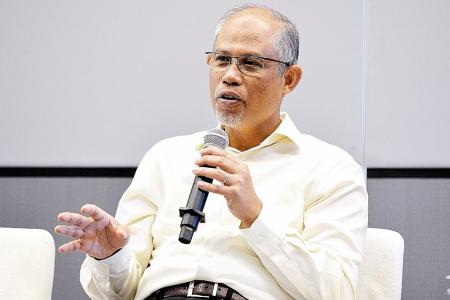Smart technology key to zero waste economy
Smart technology will be the key to achieving Singapore's goal of becoming a "zero waste" society by 2030, and create new jobs in the process, Mr Masagos Zulkifli, Minister for the Environment and Water Resources, said yesterday.
In his first Facebook Live panel discussion, which was broadcast worldwide, he emphasised the importance of a "circular economy", in which smart technology helps to extract value from waste. He believes 30,000 jobs could be created from this environmental revolution. For example, the waste management sector could move towards a system maintained by data technicians or analysts.
"It will transform the waste management industry from a cleaning industry to a clean industry," Mr Masagos said at the event, held at the Environment Building in Scotts Road.
"Workers will contribute to innovations as technology solution providers."
The global smart waste collection market is expected to be worth $223.6 million in 2025, up from $57.6 million in 2016.
The technologies contributing to a circular economy also serve as an opportunity for building a new start-up culture, said Professor Seeram Ramakrishna, chair of the circular economy taskforce at the National University of Singapore.
"In nurturing a start-up culture, we need to invest in research to develop technology solutions specific to Singapore and countries in the region," he added at the event to promote this year's CleanEnviro Summit Singapore (CESS) in July.
The National Environment Agency (NEA) has pumped $10.8 million into the Environmental Robotics Programme, which will encourage innovation in the environmental sector, said Mr Dalson Chung, NEA's director of industry development and promotion.
Mr Chung said enterprising innovators are welcome to pitch their environmental solutions to venture capitalists during this year's CESS, to be held from July 8 to 12.
In encouraging public awareness on recycling, Mr Masagos said campaigns will continue to be mounted. He highlighted the importance of separating food waste from recycling waste, as contamination of recyclables complicates the process.
"If we can just achieve this first step by ensuring the recyclables are dry and there's no food in them, it will be a big step forward for recycling."
Get The New Paper on your phone with the free TNP app. Download from the Apple App Store or Google Play Store now



